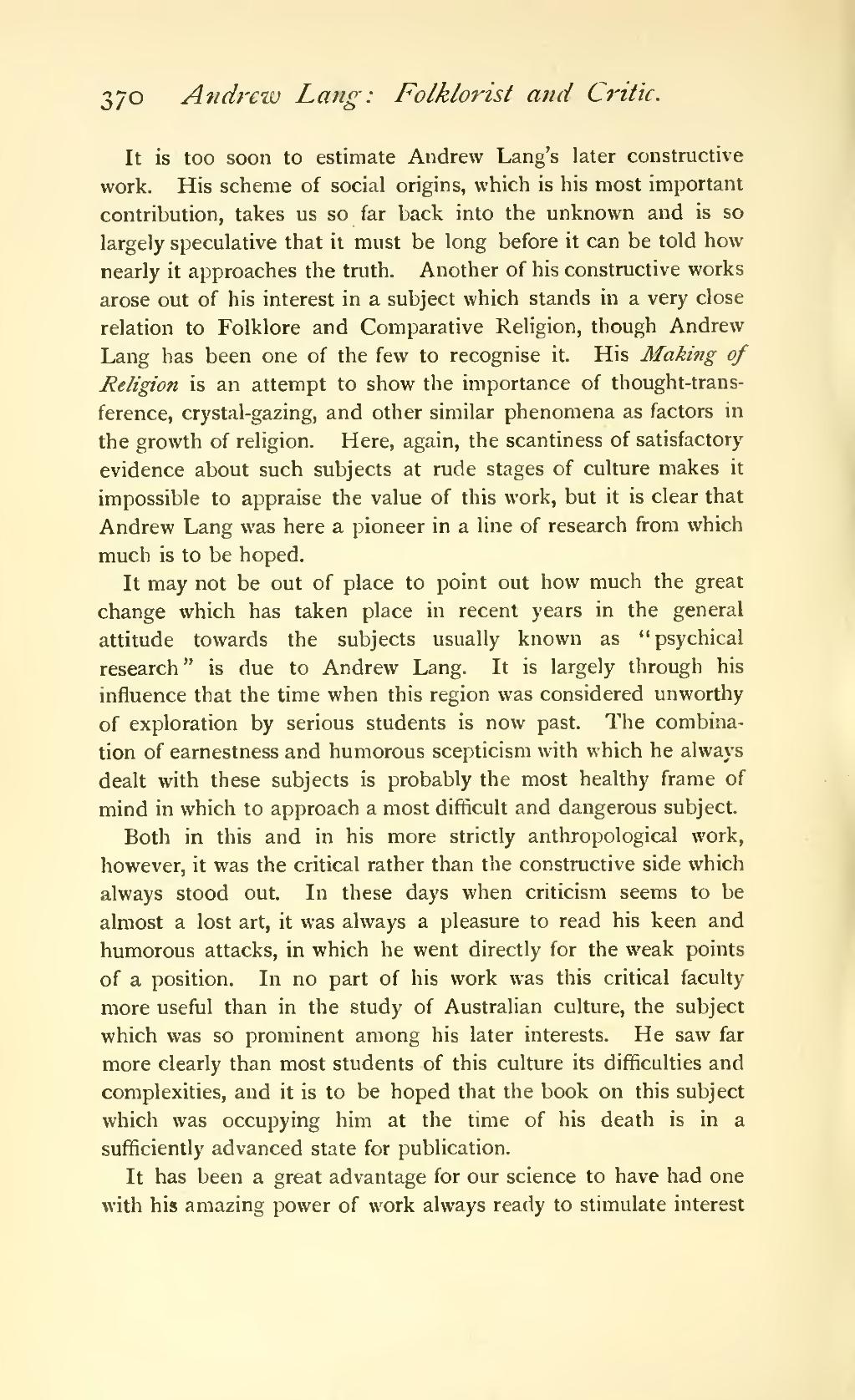It is too soon to estimate Andrew Lang's later constructive work. His scheme of social origins, which is his most important contribution, takes us so far back into the unknown and is so largely speculative that it must be long before it can be told how nearly it approaches the truth. Another of his constructive works arose out of his interest in a subject which stands in a very close relation to Folklore and Comparative Religion, though Andrew Lang has been one of the few to recognise it. His Making of Religion is an attempt to show the importance of thought-transference, crystal-gazing, and other similar phenomena as factors in the growth of religion. Here, again, the scantiness of satisfactory evidence about such subjects at rude stages of culture makes it impossible to appraise the value of this work, but it is clear that Andrew Lang was here a pioneer in a line of research from which much is to be hoped.
It may not be out of place to point out how much the great change which has taken place in recent years in the general attitude towards the subjects usually known as "psychical research" is due to Andrew Lang. It is largely through his influence that the time when this region was considered unworthy of exploration by serious students is now past. The combination of earnestness and humorous scepticism with which he always dealt with these subjects is probably the most healthy frame of mind in which to approach a most difficult and dangerous subject.
Both in this and in his more strictly anthropological work, however, it was the critical rather than the constructive side which always stood out. In these days when criticism seems to be almost a lost art, it was always a pleasure to read his keen and humorous attacks, in which he went directly for the weak points of a position. In no part of his work was this critical faculty more useful than in the study of Australian culture, the subject which was so prominent among his later interests. He saw far more clearly than most students of this culture its difficulties and complexities, and it is to be hoped that the book on this subject which was occupying him at the time of his death is in a sufficiently advanced state for publication.
It has been a great advantage for our science to have had one with his amazing power of work always ready to stimulate interest
